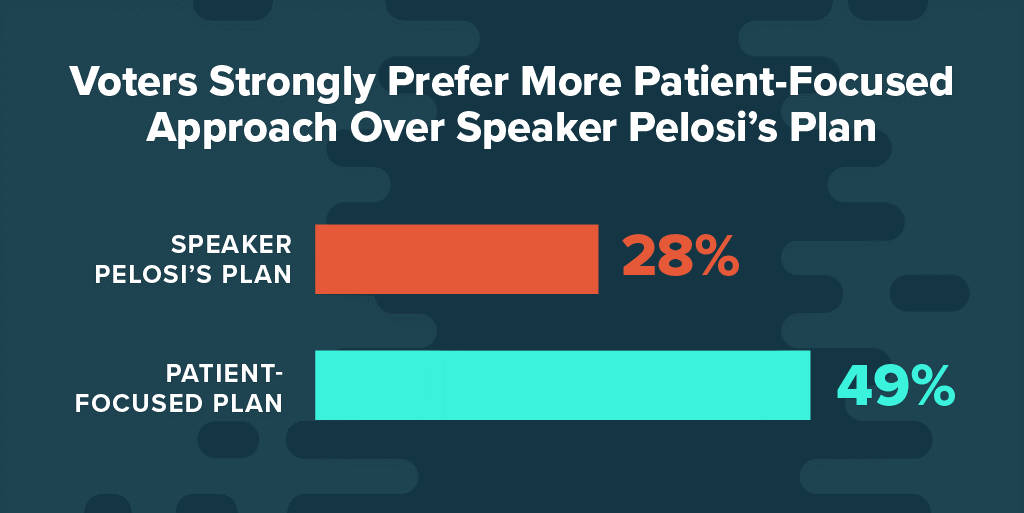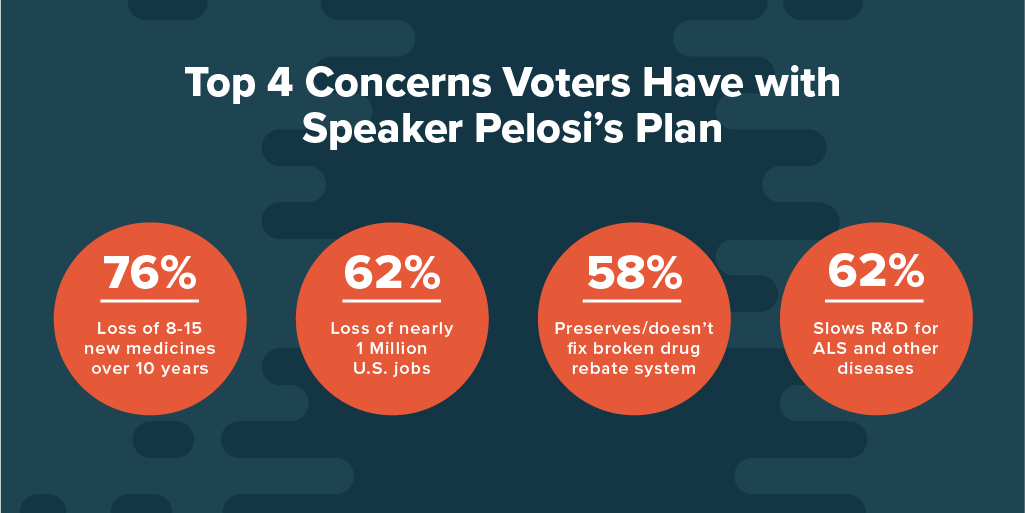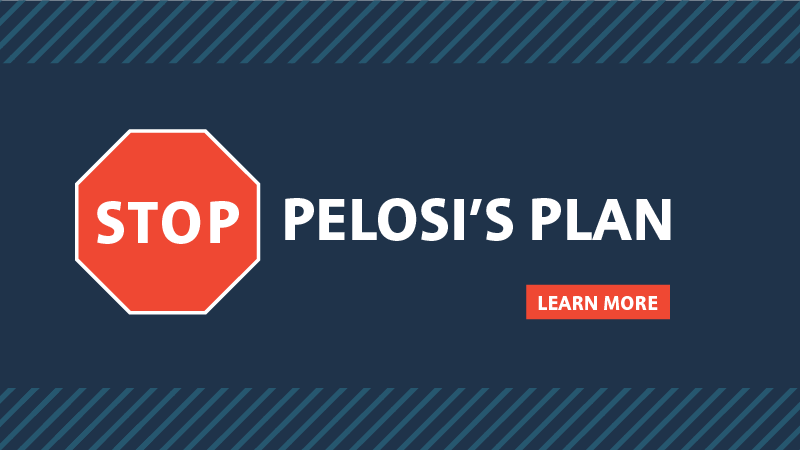The House of Representatives has spent much of this fall focused on Speaker Pelosi’s drug pricing bill, H.R.3, but a recent survey of nearly 2,000 registered voters confirms that H.R.3 is not the right solution. In fact, voters have significant concerns and a large majority outright opposes it.
Survey respondents were presented with two approaches to addressing prescription medicine costs:
- Speaker Pelosi’s plan which would allow the government to negotiate the price of 250 medicines plus insulins; rely on international reference pricing to determine a ceiling price for medicines; place a tax on pharmaceutical companies of up to 95% for not complying with the negotiation; implement an out-of-pocket cap on seniors’ medicine costs; and penalize pharmaceutical companies for raising medicine prices above the rate of inflation.
- A more patient-focused plan that includes sharing the savings with patients at the pharmacy; increasing transparency for biopharmaceutical companies, hospitals and insurers; speeding approval of generic medicines; cracking down on gaming practices that interfere with competition; and implementing an annual cap on out-of-pocket costs for seniors.
When given a choice between the two approaches, only 28% prefer the proposed drug pricing legislation introduced by Speaker Pelosi.

The same holds true when you look specifically at voters in swing states (only 28% prefer Speaker Pelosi’s plan) and Republicans (only 21% prefer Speaker Pelosi’s plan). And among Democrats, only 35% of voters prefer Speaker Pelosi’s plan.
When presented with some of the consequences if Speaker Pelosi’s plan were to be implemented, voters raised serious concerns.
- Over three-quarters of voters (76%) are concerned after hearing that Speaker Pelosi’s plan could mean the loss of at least 8 to 15 new medicines over the next 10 years, as projected by the Congressional Budget Office.
- More than 6 out of 10 voters (62%) are more likely to oppose the plan after they hear it could slow the research and development of treatments for diseases like Alzheimer’s, ALS, cancer and neurological conditions.
- More than 6 out of 10 voters (62%) are also more likely to oppose Speaker Pelosi’s plan after hearing it could lead to the permanent loss of nearly 1 million U.S. jobs, from janitors, to people working in manufacturing, to scientists, to truck drivers and more.
- Nearly 6 in 10 (58%) of voters are more likely to oppose Speaker Pelosi’s plan after they learn it doesn’t fix the broken system where billions of dollars in negotiated discounts and rebates on medicines are not passed on to patients to lower what they pay at the pharmacy counter.

While some members of Congress have argued that losing 8 to 15 new medicines over 10 years is a reasonable consequence to allow government to negotiate medicine prices and crack down on pharmaceutical companies, few find this argument particularly convincing with 50% saying it is unconvincing, only 9% saying it is very convincing and 28% saying it is somewhat convincing (13% are unsure). This is because most voters (76%) say they are concerned about losing 8 to 15 new medicines as a result of Speaker Pelosi’s plan.
Imagine what voters would think about it if they learned several experts believe the Congressional Budget Office’s estimate that Speaker Pelosi’s plan would result in a loss of 8 to 15 new medicines over 10 years is a significant underestimate. One recent study shows that under her plan small, emerging biotech companies alone would bring 56 fewer innovative new medicines to market over the next 10 years. While the White House Council of Economic Advisers released an analysis that found Speaker Pelosi’s bill “could lead to as many as 100 fewer drugs entering the United States market over the next decade, or about one-third of the total number of drugs expected to enter the market during that time.”
Voters support the pragmatic approach to lowering medicine prices over Speaker Pelosi’s plan, including sharing negotiated savings at the pharmacy, getting more generics to market and making seniors’ medicine costs more affordable and predictable throughout the year.
Rather than pursing an aggressive approach that would upend our entire system, Congress should listen to voters and pursue targeted and practical solutions that will lower costs and protect future innovations.
Read the full survey results here.
Learn more about Speaker Pelosi’s drug pricing plan here.
Take action and tell Congress to stop Speaker Pelosi’s plan here.





